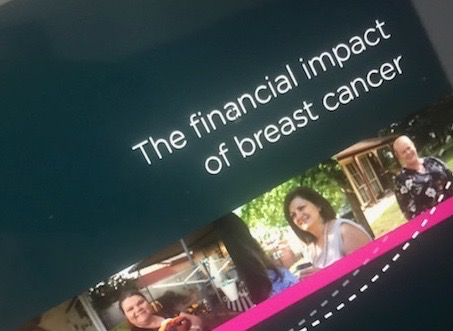Private Healthcare Australia says a report commissioned by the Breast Cancer Network Australia is based on drivers beyond the control of private health funds.
BCNA has used the report to call on private health insurers to increase benefits paid to people living with cancer to address the burden of out-of-pocket costs.
The organisation made the call based on the findings of a report it commissioned, The financial impact of breast cancer, undertaken by Deloitte Access Economics.
The report considers the financial burden on breast cancer patients and their families. It found one quarter of women with breast cancer pay more than $17,200 in out-of-pocket costs in the five years after their diagnosis.
It found a significant disparity in the financial experience of individual patients, with 12 per cent reporting no out-of-pocket costs, while one quarter of women with private health insurance reported out-of-pocket costs greater than $21,000.
The report, based on a survey of 2,000 women, did not take into account lost income where someone needs to take time off work or reduce work hours because of treatment.
It found total costs for women with private health insurance are higher than for women without.
The report includes a range of recommendations, including that private health insurers do more to promote 'no-gap' specialists and provide a $5,000 trauma benefit to policyholders diagnosed with cancer to help cover out-of-pocket costs.
"This oneoff payment should be in addition to the normal private health fund rebates paid for treatment and care," said BCNA.
The BCNA recommended an increase in Medicare rebates to better reflect the cost of treatment, with the goal of reducing out-of-pocket costs, coverage for radiotherapy through private health insurance and the introduction of a 'metastatic cancer card' so patients can access health services at a discounted rate.
It also called for greater transparency in the cost of treatment, with healthcare professionals required to provide private patients with comprehensive written information about all out-of-pocket costs before any procedure takes place.
However, in a written response, Private Healthcare Australia said many of the cost drivers identified in the report are beyond the control of private health funds, "due to anachronistic laws established long before the current standard of care was developed."
According to CEO, Dr Rachel David, "It is not lawful for health funds to cover the gap costs for services provided out of hospital where a Medicare benefit is also payable. This includes benefits for diagnostic tests and outpatient chemotherapy. Similarly, under the Australian constitution, health funds and other agencies are unable to determine what a doctor charges. The funds can reach a negotiated agreement with a doctor to pay a ‘gap cover’ benefit if the service occurs in hospital, but this cover cannot continually chase rising fees, as this would put premiums up for everyone and be unsustainable."
She continued, "Health funds have consistently recommended simple policy corrections to the Federal Government to overcome these barriers and address the issue of unpredictable out-of-pocket costs occurring when consumers are most vulnerable. These include the removal of the prohibition on health funds negotiating a payment for services provided out of hospital with doctors, and removal of barriers to establish directories to keep patients and their GPs informed about likely specialist out-of-pocket costs in advance of referral. This will permit the patient to make an informed choice of provider in consultation with their GP."
